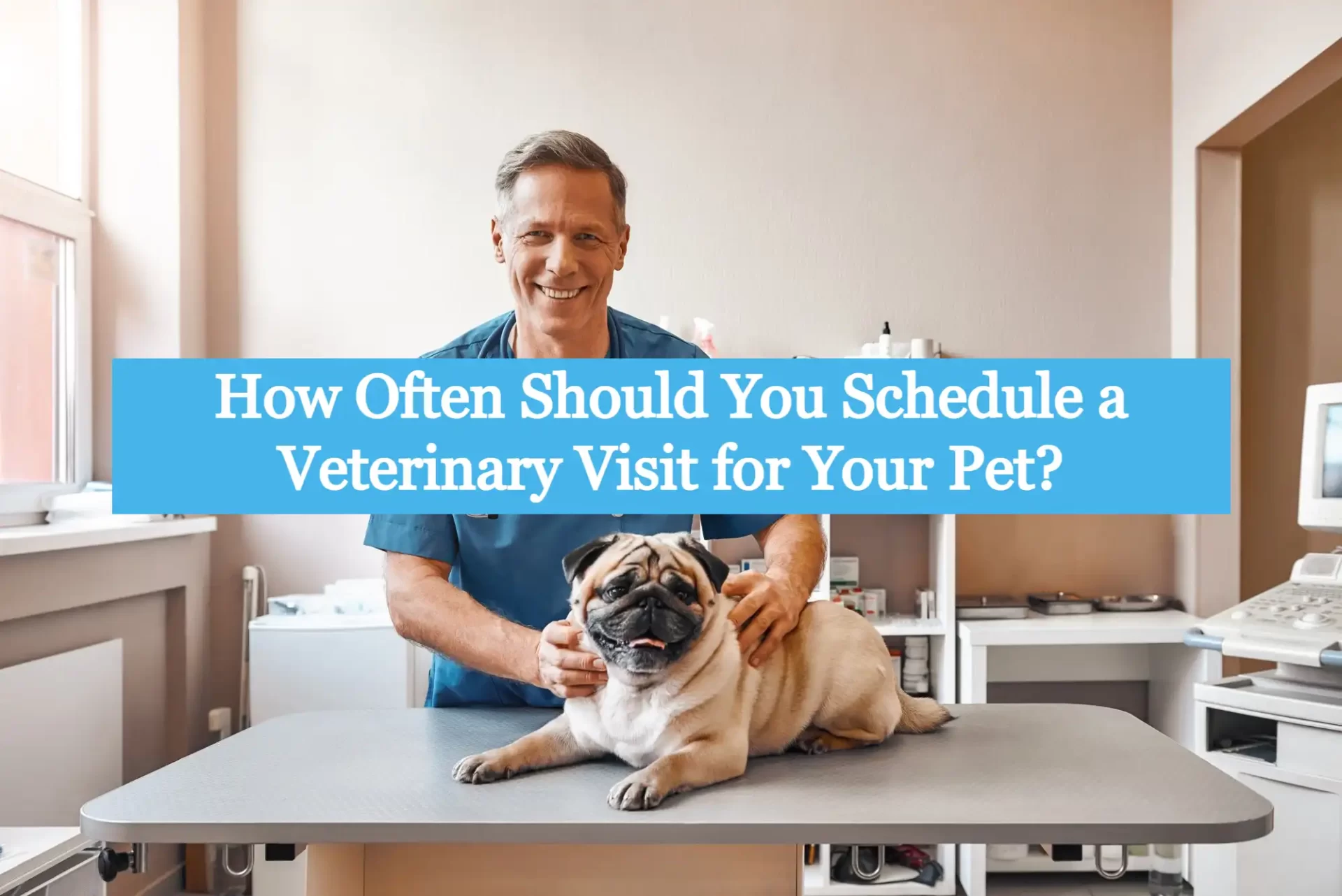Did you know that owning a pet can improve your health and lower your blood pressure?
The increased popularity of pets makes their veterinary bills expensive. Luckily, their health care plan is full of tips and information about keeping your pet in optimal health. Many believe animals have no capacity for human emotion, but the truth is their love for you can be just as unconditional as a parent.
Read on to learn about the importance of veterinary visit for your pet and the average number of visits you should make a year.
Senior Pets
It is important to schedule veterinary visit for senior pets in order to monitor their health more closely. Generally, older pets should be seen every 6-12 months for a comprehensive check-up. During this visit, the veterinarian will assess your pet’s overall health, behavior, weight, and nutrition and perform a physical and oral exam.
At least once a year, your pet should also receive a complete blood profile and urinalysis. Additionally, the veterinarian may recommend additional diagnostic tests or treatments based on your pet’s age and lifestyle. Senior pets may also benefit from additional visits for age-appropriate vaccinations or preventive care such as dental cleanings.
In some cases, pets with certain medical conditions may need to be seen more often. Finding a veterinarian you trust and who is comfortable working with older pets is essential to properly caring for a senior pet.
Adult Dogs and Cats
Adult dogs and cats should visit the vet at least once a year, although two visits are better. During the first appointment, your vet will give your pet a physical exam and check for potential illnesses as well as parasites and infections.
Then they will customize a vaccine schedule that best fits your pet’s individual needs. Visit a vet will assess any changes and make sure your pet is healthy and up-to-date on all their vaccinations. The vet can also provide advice on diet, exercise, grooming, behavior modification, and any other concerns you may have about your pet.
Additionally, your vet can alert you to any conditions your pet may have that require more frequent monitoring. Scheduling regular visits is an important part of keeping your pet healthy and happy.
Kittens and Puppies
It is important to schedule regular veterinary visits for kittens and puppies. Puppies should receive a visit within the first few days of adoption to ensure they are healthy and should then be seen every three to four weeks until they are 16 weeks old.
After this, they should have a visit every six months or annually. Kittens should have a visit within the first few days after adoption, and then visits should be scheduled every three to four weeks until they are 16 weeks old.
Annual veterinary visits should be scheduled after this. It is also important to bring your pet in for a check-up if they seem to show any signs of illness or injury. These veterinary visits can help ensure that your kittens and puppies remain healthy and happy.
First Vaccination at 6-8 Weeks Old
Scheduling regular veterinary visits for your pet should begin at the age of eight weeks old and continue with timely vaccinations at 68 weeks old. The vaccinations help ensure that your pet is properly protected from diseases, viruses, and other infections.
Visit a veterinarian who will also check to make sure that your pet is healthy and update its boosters and vaccines as needed. Depending on your pet’s lifestyle and health, you may need to take your pet for vet visits more frequently.
Second Vaccination at 10 Weeks Old
It is recommended to take your pet for their second vaccination at 10 weeks old. It is also important to follow up with further vaccinations at 12, 16, and 20 weeks of age in order to protect them against all the common canine and feline diseases.
Depending on your pet’s lifestyle, the vet may recommend additional vaccinations to keep them safe. Furthermore, a regular check-up with the vet every six to twelve months is a great way to ensure that your pet stays healthy and happy.
Third Booster at 14-16 Weeks Old
It is recommended that you schedule a veterinary visit for your pet’s third booster at 14-16 weeks old. This is a very important step to ensure that your pet is protected from contagious and potentially deadly diseases such as distemper, hepatitis, parvovirus, leptospirosis, parainfluenza, and Bordetella.
The best way to protect your pet is to ensure they get this booster and to keep up to date with their annual vaccinations. This is especially important if your pet is going to be visiting dog parks, kennels, groomers, or even pet daycares.
Final Booster at 15 Months of Age
Visiting the vet for a final booster at 15 months of age is an important part of ensuring the health of your pet. Depending on your pet, you may want to schedule a veterinary visit every four to six months to stay on top of any potential health issues.
However, it is important to remember that your pet should get their final booster at 15 months of age, regardless of how often you bring them in for other checkups. This will provide that extra layer of protection that your pet needs and should not be skipped, as this could lead to health complications in the future.
Give the best to your fur babies. Click for more immune restoration options.
Find Out How Often You Should Schedule a Veterinary Visit
Your pet’s health is important, so it’s essential to schedule veterinary visits according to their individual needs. Depending on their age, breed, and general health, the frequency of visits can vary.
Consult your vet to determine how often you should schedule a visit and create a plan for the future.
Did you find this article helpful? Check out the rest of our blog for more!




